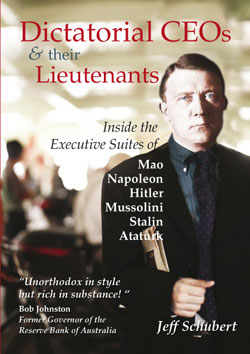Gillard craves Obama · 26 June 2010
Soon after deposing Kevin Rudd as Prime Minister of Australia in a Labor Party coup, Julia Gillard rang Barak Obama and, among other things, assured him that she supports the present strategy in Afghanistan.
At a press conference she related that she also told him that “we are close as nations, we are in an enduring strategic alliance, we are close as peoples. We have fought together around the world, and we continue to fight together in Afghanistan”.
There was some politics in this as the majority of Australians particularly older people support the American alliance. However, a majority of Australians oppose the current deployment of about 1,500 soldiers in Afghanistan.
The present strategy in Afghanistan is also increasingly being questioned. This piece from the 24 June edition of The New York Times puts it in a nutshell:
If there continue to be problems (in Afghanistan), a senior official said, the debate will intensify between those who say we have to stick with it (the present strategy) and those who say we (have) lost momentum and we have to go to Plan B. Plan B would be some combination of Mr. Biden’s stripped-down counterterrorism strategy including a hard deadline for American withdrawal and an accelerated effort by Mr. Karzai’s government to reconcile with the leaders of the Taliban insurgency, said the official, who spoke on the condition of anonymity.
So why did Gillard support an Afghanistan strategy that is being increasingly questioned?
The answer has several layers.
In general, Australian prime ministers are particularly craven to US presidents. In part this is because it feels good to be on close terms with the most powerful man in the world, and it makes a good impression on others. But there is also an apparent belief among Australian policy makers that supporting the US—no matter what it does—is good for preserving the Australia-US relationship, and thus the security of Australia. Gillard’s background and government experience suggest that she knows very little about the world outside Australia and has little ability to rationally consider such issues as Afghanistan. So she said what she has been told to say—and possibly what her natural instincts suggest.
But, there is also a broader issue.
There is often a general tendency for leaders in many fields to try to gain the respect of other leaders by showing their strength with strong statements. Sometimes the relationship being sought is one of fear, but it is just as often one of approval. Nuance is sacrificed in this process.
When the relationship being sought is one of approval you may see television images of two leaders walking unaccompanied in a garden discussing issues such as war, world economic and financial conditions etc. Even though such walks are really undertaken for the media, they increase the likelihood that the nuances of complex issues are debased in the private conversation of very politically acute but not necessarily very intellectually insightful people aimed at reaching an accord.
One danger is that instincts for accord can mutually reinforce misguided policy thinking. Each political leader, uncertain that what they are doing is right, because of their limited knowledge of or an inability to handle complex issues, comes away from the discussion feeling that he/she must be right because the other leader—presumably acting, at least in part, on their own expert advice agrees with them. Neither recognizes the possibility that the words of the other are really soothing words of emotional support rather than well-thought out views.
The danger is especially acute when one of the leaders is craven to the other. Tony Blair and John Howard with George Bush on Iraq are in my view cases in point. Julia Gillard, lacking the relative international knowledge and sophistication of Kevin Rudd, may be in a similar relationship with Barack Obama.
Gillard, as a new leader and prime minister, had an opportunity to hold back on strong comments on the Afghanistan strategy. She, with the help of her advisers, would then have been in a better position to consider developments and to offer independent advice if it becomes brutally clear that a Plan B is needed.
Given the changing world she could have also been more sophisticated in her choice of words about the Australia-US alliance. But then, phrases such as we have fought together around the world imply an emotional commitment that Australia will keep doing it whatever the US strategy!
Gillard, it seems, will aim to please and her leader words to the other leader will remain craven and foolish.


